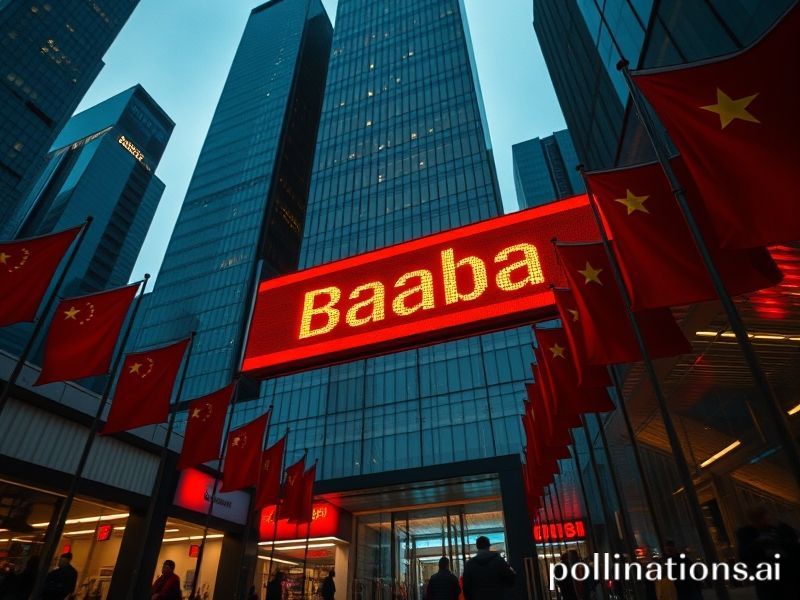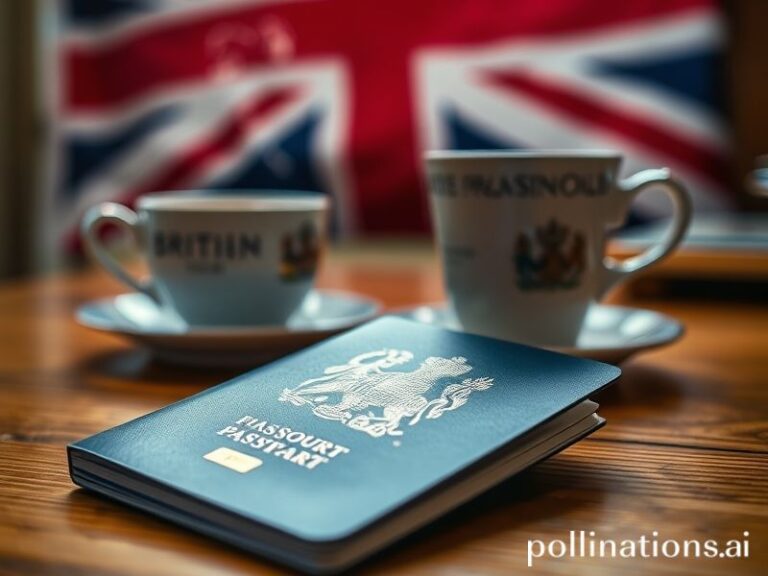BABA Stock: The World’s Favorite Geopolitical Mood Ring—From Scooter Traders to Sovereign Wealth
Alibaba’s ticker—BABA—has spent the last few years doing the financial equivalent of a trust-fall exercise on a glacier: everyone knows the drop is coming, yet the crowd still gasps when the ice finally cracks. From Wall Street to Wangfujing, from Zürich pension funds to Jakarta ride-hailing drivers who’ve turned their scooters into mini trading desks, the stock has become a Rorschach test for what the world believes about China, capitalism, and our collective willingness to pretend tomorrow will look like yesterday.
Let’s zoom out. While U.S. retail investors refresh their brokerage apps at 3 a.m. to catch Hong Kong’s opening bell, European asset allocators are quietly reducing “single-country EM exposure” (translation: flinging anything with a red stamp into the Rhine). Meanwhile, sovereign wealth funds from the Gulf—who once treated BABA like the digital Silk Road incarnate—now hedge with put options so large they could carpet the Gobi twice over. The unspoken fear is not that Alibaba will stop selling cheap electronics; it’s that the electronics might be listening for keywords like “regulatory clarity.”
The irony is exquisite: a company built on connecting global buyers to Chinese factories has become a geopolitical mood ring. When Washington hints at delisting Chinese firms, BABA hiccups. When Beijing murmurs about “common prosperity,” the hiccup becomes a seizure. The rest of us watch like bystanders at a bar fight between two heavyweight uncles who insist they’re “just talking,” even as the furniture splinters. Somewhere in Tallinn, a quant adds “Politburo throat-clearing” to the risk model, right between “supply-chain snafus” and “Elon tweets.”
The broader significance? BABA is the canary in a coal mine the size of Eurasia. If the bird stops chirping, miners in Chile worry about copper prices, Swedish fintechs fret over consumer spending, and Japanese pensioners discover their monthly payouts hinge on whether Jack Ma stays on his current low-profile yoga retreat or decides to post another poem on WeChat. Globalization’s promise was that borders would fade; the reality is that they’ve simply become transparent, letting us see exactly which bureaucratic hand is tightening the noose.
Human nature, bless its delusional little heart, keeps buying dips. Reddit threads now feature bilingual memes that translate “HODL” into Mandarin characters that also, coincidentally, spell “We are so screwed.” Financial influencers from Lagos to Lisbon post screenshots of fractional shares bought at 2:37 p.m. EST with captions like “Diversifying into the East, fam!”—conveniently ignoring that the East has firewall-shaped guardrails. Every dip is greeted as a Black Friday sale, even as the discount code keeps getting longer and more cryptic: “Use BEIJING2025 for an extra 15% off, subject to antitrust review and lunar calendar.”
Yet amid the gallows humor, real money is melting. Dutch university endowments that once earmarked BABA for “emerging-market alpha” now list it under “regulatory entropy.” Canadian teachers’ pension funds—normally the most polite capital on earth—have started calling investor relations to ask, in the gentlest possible tone, whether the variable-interest-entity structure is really just three accountants in a trench coat. The answers arrive in boilerplate Mandarin and perfect, terrifying English, simultaneously reassuring and meaningless, like a fortune cookie baked by Kafka.
So where does this leave the planet’s portfolio? In a word, bifurcated. One half still believes markets are bigger than politics; the other half is buying farmland in New Zealand. The spread between those worldviews is measured daily in BABA’s option skew, which now resembles the Himalayas after an earthquake—jagged, ominous, and oddly beautiful if you squint hard enough through the tear gas of volatility.
Conclusion: Until the world decides whether Chinese tech is a permanent pillar of global growth or merely a well-choreographed mirage, BABA will remain the international markets’ favorite tragicomedy—equal parts investment, indictment, and inkblot. Buy the dip, sell the rips, or just grab popcorn: whichever you choose, the show is multilingual and the subtitles are written in real time by regulators on three continents. Curtain never really falls; it just moves to the next regulatory filing. And somewhere, a scooter driver in Jakarta sets another limit order, praying the glacier holds just one more day.







